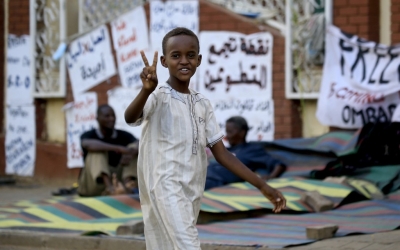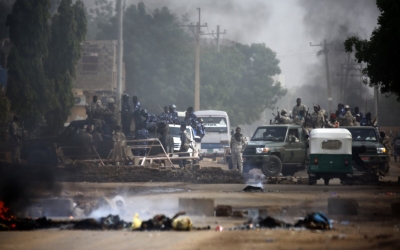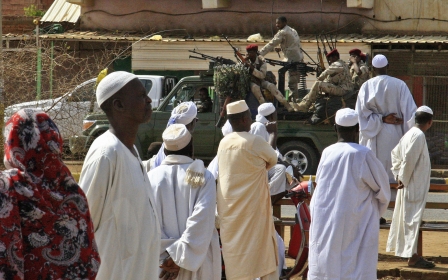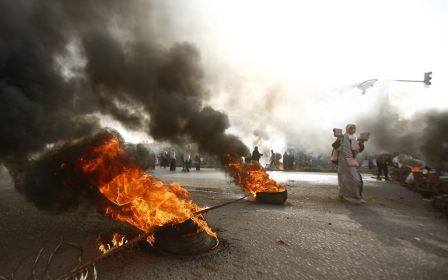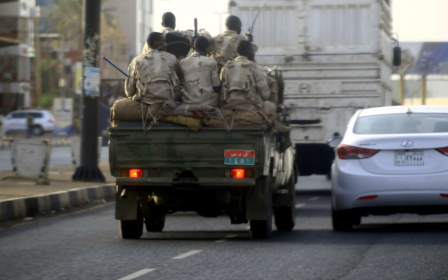Sudan's opposition again rejects return to negotiations after deadly crackdown
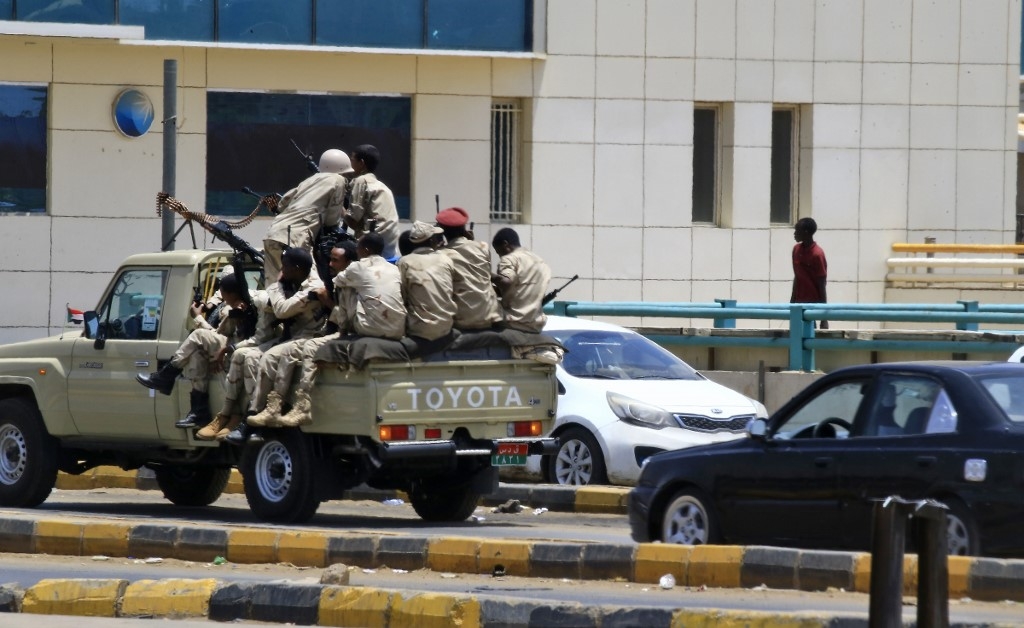
Sudan's opposition has reiterated its refusal to negotiate with the Transitional Military Council (TMC) in the aftermath of a brutal military crackdown on protesters that has left more than 100 people dead.
The Sudanese Professionals' Association (SPA), which has spearheaded Sudan's months-long protest movement, tweeted on Thursday that it rejected attempts to force it to return to negotiations.
"The blood has not dried yet; and based on that, we reaffirm that there will be no return to negotiations with the coup council. Our demands remain clear," the group said.
Sudan's protests: A brief timeline
+ Show - HideSudanese protests have evolved in the space of less than six months from complaints about bread prices to calls for long-term leader Omar al-Bashir to go and demands for a civilian-led transition to democracy.
Here's a summary of the key moments so far since the protests began.
19 December 2018: People take to the streets in the city of Atbara to protest against a government decision to triple the price of bread, torching a local ruling party office. By the next day protesters on the streets of Khartoum and other cities calling for "freedom, peace, justice". Police try to disperse the crowds, resulting in at least eight deaths. Dozens more will be killed in the weeks of protest that follow
22 February 2019: Sudanese President Omar al-Bashir declares a nationwide state of emergency. He swears in a new prime minister two days later, as riot police confront hundreds of protesters calling for him to resign
6 April: Thousands gather outside the army's headquarters in Khartoum, chanting "one army, one people" in a plea for the military's support. They defy attempts by state security forces to dislodge them and troops intervene to protect them
11 April: Military authorities announce they have removed Bashir and that a transitional military council will govern for two years. Despite celebrations at Bashir's demise, protest leaders denounce the move as a "coup" and the protesters remain camped outside army headquarters.
14 April: Protest leaders call on the military council to transfer power to a civilian government
20 April: Sudan's military rulers hold a first round of talks with protest leaders
27 April: The two sides agree to establish a joint civilian-military ruling council, but talks stall over differences in the composition of the council, with both sides demanding a a majority
15 May: With negotiators reported to be close to agreeing a three-year transition to civilian rule, military leaders suspend talks and insist protesters remove barricades outside the army's headquarters. Talks resume on 19 May but break down again on 20 May, with the opposition insistent that a civilian must head the transitional governing body
28 May: Thousands of workers begin a two-day strike to pressure the military rulers and call for civilian government
3 June: At least 35 people killed and hundreds injured, according to opposition-aligned doctors, as security forces firing live ammunition move to disperse the protest camp outside army headquarters
4 June: General Abdel Fattah al-Burhan, the head of the military council, announces that all previous agreements with protest leaders are scrapped and says elections will be held in nine months
The SPA also listed a string of demands, following this week's military crackdown in the capital Khartoum that killed more than 100 and left many with critical injuries.
Those demands include:
New MEE newsletter: Jerusalem Dispatch
Sign up to get the latest insights and analysis on Israel-Palestine, alongside Turkey Unpacked and other MEE newsletters
-
Holding the TMC accountable for acts of violence over the last two months.
-
Transferring Sudan's government to civilian rule.
-
Dissolving the Janjaweed militia, which is related to the Rapid Support Forces (RSF), members of which have been accused of carrying out the crackdown on the Khartoum sit-in.
-
Forcing RSF fighters to surrender their weapons to the Sudanese army.
-
Ending the crackdown on protesters.
The SPA had previously rejected the Sudanese military council's call for a return to negotiations, citing the onslaught against protesters.
Earlier this week, the TMC - which took control of the country after Sudanese President Omar al-Bashir was ousted in April - scrapped a deal on Sudan's political transition, and instead said it planned to hold elections in nine months.
Opposition leaders immediately rejected that, saying the political conditions in Sudan make it impossible to hold a fair vote.
The protesters, who first organised demonstrations across Sudan in December, have consistently demanded that power be handed over to a civilian-led government.
Meanwhile, also on Thursday, the African Union's (AU) Peace and Security Council voted to suspend Sudan from all AU activities until a civilian government has been formed.
The decision came after a meeting in Addis Ababa that brought together AU member states.
Following the vote, Ethiopia's Prime Minister Abiy Ahmed announced plans to travel to Sudan on Friday.
Ahmed will go to the country in the hopes of hosting a meeting between the military council and opposition leaders, an unidentified diplomatic source told Reuters.
Middle East Eye delivers independent and unrivalled coverage and analysis of the Middle East, North Africa and beyond. To learn more about republishing this content and the associated fees, please fill out this form. More about MEE can be found here.


